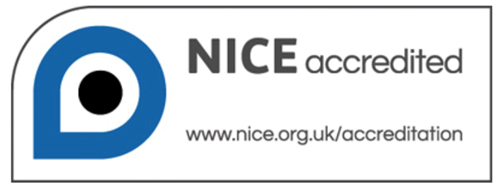Clinical Effectiveness Group
Objectives
This committee consists of regional representatives from all of the branches in England, and a representative from the UK devolved nations: Northern Ireland, Scotland and Wales. In addition, there are professional group representatives from Nurses, Health Advisers, Pharmacists, Staff & Associate Specialists, and Doctors in Training.
Other Groups within BASHH feed into this committee: The Clinical Effectiveness Group, the Clinical Standards Unit (CSU), the National Audit Group (NAG), and the BASHH/FSRH Integrated Information Group.
- To implement strategies and policies of BASHH as approved by the Governing Board
- To oversee, set and monitor standards and specifications relating to BASHH
- To identify areas of best clinical practice and promote their adoption whilst recognising local variation in capacity, infrastructure and policy
- To identify regional and individual clinic difficulties and support such services to explore solutions to issues, mobilise support and suggest action plans.
Significant activities / Outputs 2022-2023
- 3 virtual meetings and 1 face to face meeting during Spring Conference
- Supported BASHH Mpox response
- Ongoing input to National PGD
- Formalised roles and responsibilities for representatives
Future plans
- Develop new BASHH website to better support regional and national sharing of information.
- To support BASHH in assessing workforce numbers
- Support BASHH with promoting GU training and recruitment
- To support BASHH to lead on the development of coherent holistic sexual health strategies for all four nations in the UK
Structure and Remit
The Clinical Effectiveness Group (CEG) was established jointly by the Medical Society for the Study of Venereal Diseases (MSSVD) and the Association for Genitourinary Medicine (AGUM) in October 1997.
The group is made up as follows:
- Dr Margaret Kingston (Chair)
- Dr Ade Apoola
- Dr Helen Fifer
- Dr Sarah Flew
- Ms Alison Grant
- Dr Deepa Grover
- Dr Nicholas Medland
- Dr Michael Rayment
- Dr Cara Saxon
- Dr Suneeta Soni
- Dr John Saunders
- Dr Lewis Haddow
-
Dr Johnny Boylan
The remit of the group is to produce and update evidence-based national guidelines and standards for UK specialists in genitourinary medicine. The first 24 such guidelines were published in the supplement to the August 1999 edition of the journal Sexually Transmitted Infections. These guidelines were updated in 2002 and the revised versions initially published on the AGUM and MSSVD websites, and subsequent versions on the BASHH website. Archived BASHH guidelines are also available on the BASHH website.
The group continues to develop new guidelines and to update existing guidelines on a rolling basis.
It also produces patient information based on the guidelines.
Methodology

BASHH has been awarded accreditation from NICE for the production of CEG guidelines. This was most recently re-issued in 2021, and is valid for 5 years (until January 2026). See https://www.nice.org.uk/about/what-we-do/accreditation
The CEG commissions individuals or special interest groups to write the guidelines according to CEG specifications based on the Appraisal of Guideline Research and Evaluation (AGREE) instrument developed by the Royal College of Physicians (www.agreecollaboration.org). All CEG guidelines are reviewed after a maximum of 5 years; each year they are all re-read and an earlier review considered when there have been significant developments. Each guideline being developed or revised has an allocated member of CEG to support the process and ensure consistency of methodology, content and style; when the guideline is ready for wider review it is posted on the BASHH website for two months and comments requested. The CEG has ultimate editorial responsibility for the guidelines.
The full guide to our methodology (2015; updated Nov 2020) is available here.
All members of guideline writing committees are required to complete the CoI form.
Members